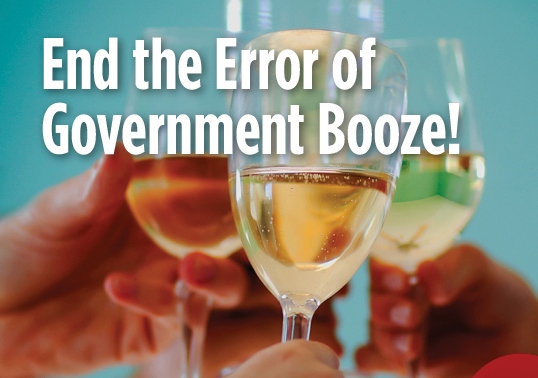Media

The PLCB: A Winner in a Race with No Competitors
In 2013, the Pennsylvania Liquor Control Board (PLCB) released its first annual report, emphasizing record sales and “profits.” Neither of these is impressive when analyzed in context, but the PLCB continues to tout them as accomplishments.
As we’ve pointed out repeatedly, the PLCB has—until the passage of Act 39—had a monopoly on wine and liquor sales. Bragging about sales and profits when shielded from competition is like running a victory lap after ‘winning’ a race with no competitors. Nevertheless, the latest report unwittingly makes the case for full privatization.
By its own numbers, the agency is a liability rather than an asset for Pennsylvania. Here’s why:
- The PLCB’s net income in 2015-16—although higher than the prior year—is still down 19 percent from fiscal year 2012-13. This despite reporting record sales of $2.43 billion.
- The PLCB’s operating expenses continue to rise and were 22 percent higher in 2015-16 than in 2011-12. Higher expenses may be justified if the PLCB were operating more stores. It’s not. Store locations declined from 608 to 601 over the same time period.
- Total liabilities increased by $105.4 million for the year, due largely to the agency’s pension obligations. Overall, its poor net financial position did not change significantly. It ended the year approximately $238.2 million in the red.
Still, PLCB apologists remain steadfast in opposing privatization. They claim the agency makes money for the state and eliminating it would blow a hole in the budget. Yet, almost 83 percent of PLCB transfers to the General Fund come from taxes, which consumers and businesses would still pay under a private system. In fact, revenue would likely increase under a competitive system, which gives consumers more choices and fewer reasons to buy alcohol in other states—a problem known as “border bleed.”
The case against the PLCB isn’t strictly financial. The agency has a long history of corruption and a string of shortcomings that are well documented. The latest was on display just before Thanksgiving, when the state stores’ credit card system overloaded and failed because it could not handle the sales volume. This statewide failure would not have been possible in a truly competitive market.
The good news is the legislature recognizes the futility of the PLCB’s market operations. Last year, lawmakers voted for the first time in state history to privatize the system. However, Gov. Wolf vetoed the bill for dubious reasons. This should not stop the legislature from putting another privatization bill on his desk.
With the Taxpayer Party set to increase its majorities in the General Assembly, Gov. Wolf may finally have to acknowledge a political reality: liquor privatization is popular inside and outside state government.